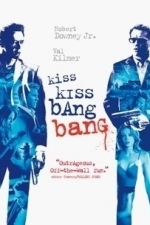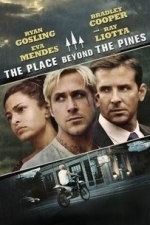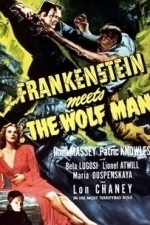
Volume Sanity
Utilities and Entertainment
App
One big slider bar to control the system volume limit. Easy. Do you have a child who always plays...

Money Box Pro. Savings Goals
Finance and Lifestyle
App
Take control of your focused savings plan and put the power to purchase what you want into the palm...

Voice Answer
Business and Reference
App
Voice Answer gives answers on many topics and can assist you with a lot of tasks. The stunning 3D...

Carcassonne
Entertainment and Games
App
a classic board game turned into an app. Tile laying game, where each turn you draw a tile and place...
BoardGameApp

Athla Velocity: Hands-Free Speed Radar (Ultimate Version)
Sports and Health & Fitness
App
Considering a PocketRadar or a Stalker Doppler? See our "battlefield" comparison of five speed...
Heather Cranmer (2721 KP) rated The Exalted Gate in Books
Jun 7, 2018
I absolutely love the cover of this book. It is gorgeous!! Anyway, this book has ten stories in it, so I will review and rate each one individually.
*
Boots
Judith (of an undisclosed age) is a girl that hates wearing shoes. However, she is in a play where she has to play a Polish tramp. She doesn't want to wear shoes, but the director says even tramps wear shoes. She finds some beat up looking boots in the prop room and puts them on. As soon as they are on her feet, it's like they have a mind of their own. They take Judith where they want to go. What ensues in an adventure that Judith won't soon forget.
I thought the story of Boots was a really cute and interesting read. I definitely think this will appeal to children of all ages. The only slight problem was with punctuation, but that's nothing that major. Judith is an interesting girl. I'd recommend this story.
I'd give Boots a 4.5 out of 5.
*
Five Gifts
Lonia is a thirteen year old girl whose parents are already nagging her to get married. (Yeah, it's a bit much, but it does say in the story that this was way back in the day). She'd rather spend her days in the children's glade talking to her elf friend, Pintak. One day, Pintak is kidnapped by a mean old wizard, and Lonia decides that she must go rescue him. She is given five gifts from different creatures of the forest to help her on her quest.
I was impressed with this story, and I found it quite interesting. There's also a lesson to be learned about experimenting on animals. Lonia was definitely a brave little girl and was willing to risk everything to save her friend. There are a few punctuation mistakes and a mispelt word, but other than that, this story was a good one.
I'd give Five Gifts a 5 out of 5.
*
Sintinko
Sintinko is a story set in Japan back when it was all emperors and generals. The emperor is jealous of Sintinko and wants to have him killed. It's only because of Ilyo, Sintinko's love interest, that the emperor spares his life. However, Sintinko is banished from Japan until he can find a maple tree that can sit in the hand of the emperor. Ilyo and Sintinko know that they will most likely never see each other. Unbeknownst to Sintinko and everyone else, Ilyo disguises herself as a geisha to help Sintinko on his journey. Love and loss are the themes of this story.
This was such a bittersweet love story. I felt sorry for both Sintinko and Ilyo. Sintinko thought he would never see his beloved again and swore off any type of relationship. Ilyo had her beloved right there in front of her, yet she couldn't do anything about it.
The names, being Japanese, were a bit hard to pronounce, but it's easy to get past that since the story is so strong. Speaking of names, this story even lets us know how the Bonsai tree got its name.
There's a few punctuation mistakes, but nothing that takes away from the story.
I think this story would be better suited for ages 11+. Personally, I found the story a bit slow, but not painfully slow.
I'd give Sintinko a 3.5 out of 5.
*
Tivurambhat
Tivurambhat is the story of a ghost by the same name of the title who helps people out in times of need in India. A mean man forces people to work for him by letting them borrow money, putting the interest up, and paying them such low wages they can never afford to pay him pack. One man decides to do something about it and goes to Tivurambhat for help.
I loved the message behind the story. Towards the ending, it even had me smiling. I couldn't pronounce the names since they were all Indian names, so I just shortened them so my American self could pronounce them. I loved the character of Tiv. He kind of reminded me of an American version of Casper for some reason. I really enjoyed the conversation between Pradesh and Tiv the most. This was such a happy story!
Again, there's some punctuation mistakes and a few grammar ones as well, but the story itself was excellent.
I'd give Tivurambhat a 5 out of 5.
*
St. Penalyn's Well
St Penalyn's Well tells the story of Rebecca (of an undisclosed age) who ventures into an overgrown garden with her dog. She stumbles across a well with an inscription. It is while reading this inscription that she becomes trapped in the well. Lucky for her, she meets an elf named Opickle who keeps her company and gives her the inspiration she needs to find her way out.
This was definitely an interesting story. I was hooked all the way through. It's a story about friendship amongst diversity and not giving up. I found Opickle to be just a tad bit of a snob but not enough to put me off the story.
A few punctuation mistakes throughout the story but not enough to be distracting.
St. Penalyn's Well gets a 5 out of 5 from me.
*
Quint and Trout's Mistake
Quint and Trout's Mistake is a story I didn't finish because of the name calling and making fun of someone who is overweight. It starts out innocently enough. A lake is being overrun by a white smelly substance. Two brothers, Quint and Trout, talk their friend Ned into investigating why this is happening. Ned swims down to the bottom of the lake and finds an overweight creature living in a cave who has been kicked out of his house. This is when the name calling starts, and I stopped reading.
I do not like stories aimed at children that condone name calling of any sort whether it be because of weight, disabilities, race, etc. Children do not need to read something like this and feel bad about themselves or view it as an excuse to tease others. I was very disappointed something like this was in a children's book.
Quint and Trout's Mistake gets a 0 out of 5 from me. What a vile story!
*
Densus
Densus is a boy who was born with blue fingernails and blue streaks in his hair. This is because he has a destiny to fulfill. When a crab named Arnold asks him if he'd go tell a giant that he has found a perfect wife for him, Densus agrees because it's his destiny even if there's a possibility the giant could kill him.
This is a story about destinies. It lets us know that we all have destinies if only we weren't too busy trying to find out what they are. This is a fun story which I think children would love! I loved Arnold the crab!! I think a majority of children would love him.
Again, there's a few punctuation and grammar mistakes but nothing major.
I'd give Densus a 5 out of 5.
*
Alice's Granddaughter
Alice's Granddaughter takes place years after Alice in Wonderland. Alice's granddaughter, Alicia, is recruited by a thief named Cheng to go down into a rabbit hole to get him a yellow dragon. Alicia discovers that things in Wonderland haven't changed much.
I thoroughly enjoyed this story! I'm a sucker for everything Alice in Wonderland-esque, and this was no exception! I loved how the author still managed to preserve the original Wonderland in his tale and how he even managed to keep the style of writing similar to that of Lewis Carroll. My favorite character was definitely the talking table. My only gripe is that I wish this story would've been longer!
As like with the previous story, there are some punctuation and grammar mistakes that can be overlooked.
Alice's Granddaughter gets a bit 5 out of 5.
*
The Dragon
The Dragon is a story about death. In this story, we follow a dragon in her very last moments as she dies of what I assume to be old age. We get to see her memories of when she was her prime and when she takes her last breath.
This is a sad story and probably one for the older children unless younger children can handle the topic of death. It's not written in a morbid way though. It's actually written quite beautifully especially when we get to see the memory of the dragon in her prime. I think this story can show that death is not always bad.
There are grammar and punctuation mistakes but nothing that deters from the story.
The Dragon gets a 3.75 out of 5.
*
The Wisdom of a Dog
The Wisdom of a Dog is about a man named Keith and his dog who go on an adventure and wind up in a crystal city. Keith must found out who is destroying the city and save it.
This story was a good read, and I think most children would enjoy it especially as it involves a talking dog. I enjoyed how the author even placed his own dialogue in the story. This is a good versus bad story that shows that bad people never win.
Again, there are grammar and punctuation mistakes, but it doesn't take away from the story.
The Wisdom of a Dog gets a 3.5 out of 5.
*
The Exalted Gate by Daniel Nanavati averages out to a 3.5 out of 5. I'd definitely recommend this book to old and young alike!
(I received a free physical copy of this title from the publisher in exchange for a fair and honest review).
Movie Metropolis (309 KP) rated Life Of Pi (2012) in Movies
Jun 10, 2019 (Updated Jun 10, 2019)
In short, the answer is a resounding yes. From the stunning special effects and beautiful acting to the heart-warming story, it captivates from beginning to end like no other film released this year.
The film begins with a pet hate of mine, the credits. I always think a movie that starts with its credits is usually a huge let-down but something was different here, as soon as the brilliantly filmed names flash across the screen, I knew this film was going to be spectacular, just how spectacular however, I was not prepared for.
The story is, essentially what the title says it is, the life of a boy called Pi and his extraordinary journey from childhood, through adolescence and finally into adulthood. It seems quite simple and perhaps nothing too innovative or different, but the way Lee has captured the magic of the novel really does shine through on screen.
In the present day, Rafe Spall plays a budding writer searching for inspiration for his next big book. He comes across Irrfan Khan who plays the adult Pi and has an unbelievable story to tell. So, as he begins to narrate this incredible journey, the viewer is transported to when Pi was a boy.
It’s true that the film takes a while to get going and the scenes in Pi’s native India are perhaps the most testing of the entire film. The momentum is built up slowly as the boy travels through school life whilst his family run a small zoo in their hometown. Alas, the perfection of his childhood is ruined when his entire family decide to relocate to Canada due to an economic crisis. They are packed onto a tanker with the zoo animals on-board and begin the journey to their new life.
Whilst on the last leg of their journey, their ship is ravaged by a severe storm and Pi’s family is lost, along with most of the zoo animals and, in a scene that even betters the emotionally charged sinking in Titanic and the CGI packed sinking in Poseidon, their tanker is lost to the ocean.
Thankfully he survives, along with an injured zebra, a naughty hyena and a motherly orangutan in a small life-boat. It’s safe to say that the zebra and ape don’t last too long on-board a ship with a hyena and they are picked off as lunch. However, also sailing with them is Richard Parker, a Bengal tiger and he forms the basis of the film, along with Pi. At first, after Richard Parker makes light work of the hyena, the relationship between Pi and his new shipmate is somewhat strained, a constant battle between who is going to eat who and the only sensible option is for Pi to live on separate raft tied to the life-boat.
However, a few days pass and finally they can share a boat, albeit after a couple of amusing scenes involving urine and some flying fish.
Richard Parker is a beautiful animal to say the least, a mixture of live action tigers, CGI animation and animatronics really brings him to life, which is good considering he is the only other character in the film. This is where Ang Lee’s brilliance as a director shines, bringing warmth and heart to a character that is not only not real, but an animal, without the ability to talk and share feelings. Credit must also be given to newcomer Suraj Sharma who plays Pi Patel absolutely brilliantly. I simply could not believe this was his first big acting role; his performance is nothing short of stunning.
Then there are the special effects and 3D. Everything is a wonder to behold and the 3D is a help in enjoying the film, rather than a hindrance which it continues to be in other movies. There are two scenes in particular which really stand out, including a lot of jellyfish and a few thousand meerkats. I won’t say anything else, as they need to be seen to be believed.
Moreover, in the depths of this film lies a huge emotional core, the story of a boy and his ‘pet’ and the perils they face, the togetherness they bring to one another is touching to say the least and let’s just say there were more than a few sniffles coming from the rows behind me in the cinema. However, it is more than just a story of companionship; there is a deep religious message about believing in god even if he seems to not be there 100% of the time. Whether or not you choose to read into this is your decision, but it’s there throughout.
Life of Pi is something really special, a magical journey that needs to be seen to be believed. Very rarely, a film comes along that touches your heart, your soul and your head and this is one of those films. Everything from the performances of all the actors, the beautiful recreation of Richard Parker and stunning special effects make this film as revolutionary as Avatar was in 2009. It is not only the best film of 2012; it is one of the best films ever made. Please, I urge all of you who read this, go see it, and witness history in the making.
https://moviemetropolis.net/2012/12/22/life-of-pi-review-2012/
Chris Sawin (602 KP) rated Kiss Kiss, Bang Bang (2005) in Movies
Jun 18, 2019
Harry Lockhart (Downey) is a thief that finds himself in a peculiar situation. After almost being apprehended by the police while breaking into a toy store, Harry stumbles into an audition and impresses everyone when his reading cuts a little too deep and is strangely accurate to Harry’s current situation. Now seen as some sort of acting prodigy, Harry finds himself in Los Angeles awaiting his screen test. He’s introduced to Gay Perry (Val Kilmer), a gay detective that’s hired to bestow his detective wisdom on Harry for his new on-screen role.
But before character development can truly begin, Harry is re-introduced to Harmony (Michelle Monaghan); a childhood friend and the girl-next-door-type who Harry considers to be the one that got away. However, Harry’s newfound luck is short-lived. While tagging along with Perry during one of his cases, the two of them witness two men in ski masks drive a car off a cliff and into a lake. They discover a woman with a broken neck in the trunk and the realization dawns on them that this is bigger than either of them could have ever imagined. With multiple cases suddenly being connected to one another and clues coming together to form bigger pieces of the puzzle, maybe Harry, Perry, and Harmony meeting each other is fate and not just a coincidence.
While Kiss Kiss Bang Bang is a noir film on the surface, it also has that buddy cop dynamic that Shane Black perfected with the likes of the Lethal Weapon films and The Nice Guys. The film has elements of mystery, comedy, action, and thriller genres for an overall experience that is entertaining on a variety of levels. Harry guides you as the narrator throughout the majority of the film and there are some intriguing storytelling techniques utilized to help get Harry’s perspective across. There’s a sequence where Harry realizes he’s forgotten to tell the audience an important piece of information and the film reel acts like it’s about to run off track before it pauses showing what looks like the film paused between two frames of a film reel. Kiss Kiss Bang Bang has a few elements like this that capitalizes on Harry’s quirks while he narrates that gives the film and the story a refreshing ambience.
This is Robert Downey Jr’s favorite film of his entire filmography and it’s difficult to argue with that. At a time when Downey was trying to rebound, stay sober, and prove that he was still a talented actor, Kiss Kiss Bang Bang benefits from all of his strengths. As Harry, Downey portrays nearly every emotion imaginable and this performance reminds you why he has always been held in such high regard. Unlike Iron Man 3 which seems to depreciate in repeat viewings, Kiss Kiss Bang Bang holds up extremely well for a film that is 10+ years old and should be considered as one of Shane Black’s strongest films in general and to date.
The one downside was the way the film was released theatrically. The film didn’t expand to more theaters after its opening weekend and underperformed at the box office, but did well overseas and was a big hit once it was released on DVD. The Gay Perry character is considered to be the first openly gay character to headline a major motion picture in Hollywood and Val Kilmer is in top form in the role. The chemistry he has with Robert Downey Jr is overwhelmingly entertaining while Perry’s agitation with Harry’s incompetence as a detective is hilariously brought to light by Kilmer’s memorable performance.
John Ottman’s score is the unseen cast member of Kiss Kiss Bang Bang that helps cement the noir vibe the film is aiming for. The jazz-infused compositions invoke a sense of mystery and intrigue in the viewer that sets the tone of the film perfectly. For proof of this, look no further than the film’s opening credits which simultaneously feel like an homage to other noir films while also offering something completely new.
Kiss Kiss Bang Bang isn’t as overlooked as it used to be, but it still doesn’t seem to have the reputation it deserves. The film is entertaining on so many levels and the performances from the cast are exceptional. The music is superb and the story constantly captivates; Shane Black couldn’t have dreamed of a better directorial debut.
Kiss Kiss Bang Bang is currently available to stream on Amazon Prime, YouTube, Google Play, and Vudu for $2.99 and iTunes for $3.99. The film is also free on Amazon Prime if you have Cinemax with Prime Video Channels. It is currently available on DVD for $8.49, Blu-ray for $16.99, and Multi-Format Blu-ray for $14.42 on Amazon. On eBay, the DVD is currently running $4.66 pre-owned and $4.50 brand new with free shipping and a brand new Blu-ray is $15.98 with free shipping.
Gareth von Kallenbach (980 KP) rated The Place Beyond The Pines (2013) in Movies
Aug 7, 2019
Pines is the story of two men on opposite sides of the law, just trying to do the right thing and how what they do impacts each other’s lives, and the lives of their sons. Of course the means by which they got to the “right thing” was not always the “right way”, but ultimately they were trying to good.
Ryan Gosling plays “Heart Throb” Luke Glanton, a stunt motorcycle rider with a traveling circus. We open on him doing his thing in Schenectady, New York, and after his performance he sees Romina (“Roe”, portrayed by Eva Mendes). You can tell these two have history, as though they met the last time his little side show burned through town. Cutting through the awkwardness, Luke finds out that Roe had a kid. His kid, Jason. Though, he didn’t find out from her. Determined to make things right, despite Roe having moved on being with another man, Luke sticks around Schenectady to try and be part of his son’s life and to win Roe from her man. Only things don’t begin moving fast enough for him, and so turns to robbing banks in this small town as a way to provide for his lover and their newborn child. Only things go south fairly quickly and this puts him on a collision course with an ambitious rookie cop.
Bradley Cooper plays Avery Cross; a rookie cop on the force all of six months. After a harrowing deed that puts takes him off duty for several months and causes him so serious psychological issues which make it hard for him to even look at his son, Avery Jr. After his recovery, Avery returns to the force only to be thrust into a den of corrupt cops, gangs and a genuine fear for his life. He is not sure how to react at first, but eventually knows that he must do the right thing… even if it means ratting out his brothers in arms. This doesn’t prove to be an easy course for him, but he is determined to do the right thing, despite it tearing his family apart.
Act one of this film focuses on Gosling and Mendes’ characters and their tumultuous relationship. When they first brought Mendes on screen, I was really questioning the casting choice. By the end of the act, those questions were still there. It just didn’t seem like Gosling and Mendes had the chemistry that the makers of the film were desperately trying to portray. But we do see a lot into the character of Luke and how much he really just wants to be there for his son. Gosling did an excellent job with the role, but I feel like there was thing that was distracting from his performance: his hair. For some reason they decided bleach blond was the way to go to this character, but mostly what I was thinking when he was on screen was that it just looked out of place and I really had to concentrate to get past it.
Act two focuses on Bradley Cooper and the turmoil he goes through. I can’t say too much without giving away some major plot points of the film, but Bradley Cooper definitely did an excellent job playing the young rookie cop. He has an excellent supporting cast for his act with Harris Yulin playing his father, Rose Byrne as his wife and Bruce Greenwood as the District Attorney. He eventually manages to get from underneath all the lies, coercion and corruption to make a bid for an Assistant District Attorney position.
Fast forward to 15 years later, and this is where our act three takes place. Only now we are focusing on the lives of young Jason and Avery Jr. The deeds of their fathers in yester year, portrayed in our first two acts, affect our young subjects as they become friends without realizing the history between their families. I felt that Dane DeHaan who portrayed a 17-year old Jason knocked it out of the park with his performance. But there is something left to be said for Emory Cohen who is on screen as Avery Jr.
Want to know the rest? Watch the movie. Acts one and two, though long winded at points, blew me out of the water. Cianfrance did an excellent job of captivating the audience and making you care for the two focus points, despite them being on completely different sides of the law (as mentioned earlier). Act three, however, fell kind of flat to me. It very well could be a result of a poor casting choice in Emory Cohen, but I also felt like they could have shaped the end of this tail into so much more.
Overall, I actually enjoyed the movie, despite a lackluster ambition to go see it. Would I have gone to see it on my own if I had to pay for it? Nah! But it is a good date movie and might possibly start some interesting conversations between you and your partner.
Matthew Krueger (10051 KP) rated Frankenstein Meets the Wolf Man (1943) in Movies
Oct 15, 2020
The plot: Lawrence Stewart Talbot (Lon Chaney Jr.) is plagued by a physical oddity that turns him into a crazed werewolf after sundown. His desire to rid himself of this ailment leads him to the castle owned by mad scientist Dr. Frankenstein. Frankenstein, it turns out, is now dead, yet Talbot believes that the scientist's daughter, Baroness Elsa Frankenstein (Ilona Massey), can help him. However, his quest to right himself puts him on a collision course with Frankenstein's monster (Bela Lugosi).
This was the first of a series of "ensemble" monster films combining characters from several film series. This film, therefore, is both the fifth in the series of films based upon Mary Shelley's 1818 book Frankenstein; or, The Modern Prometheus, directly after The Ghost of Frankenstein, and a sequel to The Wolf Man.
As ultimately edited and released, Frankenstein Meets the Wolf Man is told in two almost equal parts. The opening scenes tell the story of Talbot's resurrection, killing spree, hospitalization, and escape across Europe. Much time is spent with a secondary policeman, Inspector Owen, and on scenes with a desperate Talbot hospitalized by Dr. Mannering. The discovery of the Monster and pursuit of Dr. Frankenstein's scientific notes do not begin until thirty-five minutes into the film. The second half introduces the Monster, Elsa, and the village of Vasaria and its inhabitants.
Immediately following his success in Dracula, Bela Lugosi had been the first choice to play the Monster in Universal's original Frankenstein film, but Lugosi famously turned down the nonspeaking, heavily made-up role: as conceived by the original director Robert Florey, the Monster was nothing more than a mindless killing machine and not suitable for Lugosi's rising stardom and career as a leading actor, and the original make-up for Lugosi's screen test was closely based on the doll-like clay robot in The Golem.
Eight years later, Lugosi joined the film as the Monster's twisted companion Ygor in Son of Frankenstein. He returned to the role in the sequel, The Ghost of Frankenstein, in which Ygor's brain is implanted into the Monster (now Chaney), causing the creature to take on Lugosi/Ygor's voice. After plans for Chaney to play both the Monster and the Wolf Man in the next film fell through for logistical reasons (Chaney demurred), the natural next step was for Lugosi, who turned 60 during the film's production, to take on the part that he once was slated to originate.
The original script — and indeed the film as originally filmed — had the Monster performing dialogue throughout the film, including references to the events of Ghost and indicating that the Monster is now blind (a side effect of the brain transplant as revealed at the end of the previous film, and the reason for his iconic stiff-armed "Frankenstein walk"). According to Siodmak, a studio screening audience reacted negatively to this, finding the idea of the Monster speaking with a Hungarian accent unintentionally funny (although the Monster spoke with Lugosi's voice at the end of Ghost, the audiences had been carefully prepared for it by the plot of the film). This has been generally accepted as the reason virtually all scenes in which Lugosi speaks were deleted (though two brief scenes remain in the film that show Lugosi's mouth moving without sound). All references to his being blind were also eliminated, rendering the Monster's groping gestures unmotivated for those unfamiliar with the ending of the previous film. Close-ups of Lugosi's eyes during the revitalization scene and his evil, knowing leer to Patric Knowles were supposed to indicate that his vision had been restored, but in the ultimate context of the film this means nothing. Consequently, Lugosi is onscreen literally for only a few minutes, leaving the Wolf Man as the film's primary focus.
Lugosi suffered exhaustion at some point during the filming, and his absence from the set, combined with his physical limitations at age 60, required the liberal use of stand-ins.
This would be the final Universal horror film in which the Monster played a major role; in the subsequent films The House of Frankenstein and House of Dracula, the Monster, played by Glenn Strange, is brought back to life only in the final scenes (in the 1948 Universal comedy Abbott and Costello Meet Frankenstein (the second and final film in which Lugosi plays Dracula), Strange has a larger role and the creature once again speaks, albeit with very limited dialogue, twice muttering, "Yes, Master."). It was also the last Universal horror film to feature an actual member of the Frankenstein family as a character.
A tribute to this meeting of two horror film legends happens near the beginning of the film Alien vs. Predator, when this film is seen playing on a television at the satellite receiving station. In the US version of the 1962 film King Kong vs. Godzilla (another pairing of prominent monsters), the music from the fight scene at the end of the film also plays during the final fight between Godzilla and Kong.
So the reason why this movie was a huge disappointments that it was universal first ensemble. A meet between two iconic monsters and boy did it disappointment. Their didnt meet until the last 5 minutes, no scratch that the last minute. Yes you read that right, the last minute their meet. Huge disappointment. It was also slow. I dont recordmend watching this one and skip it. The only reason im giving it a 5 is because of Lon Chaney Jr. and Bela Lugosi.




